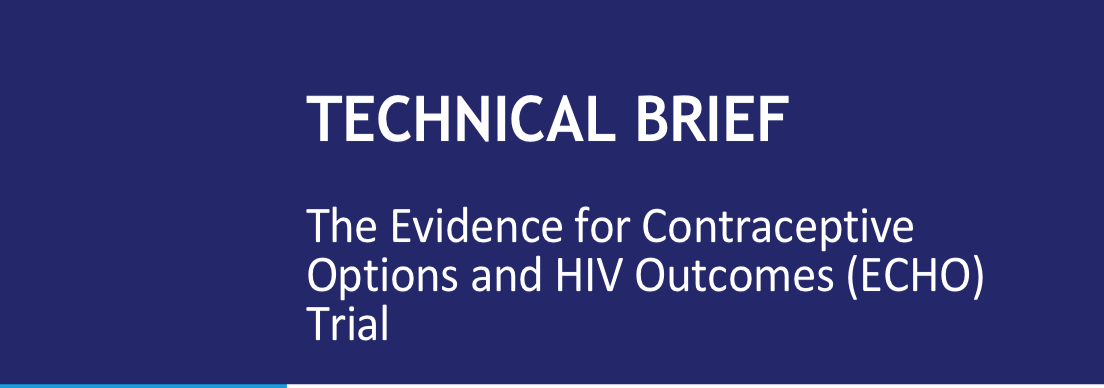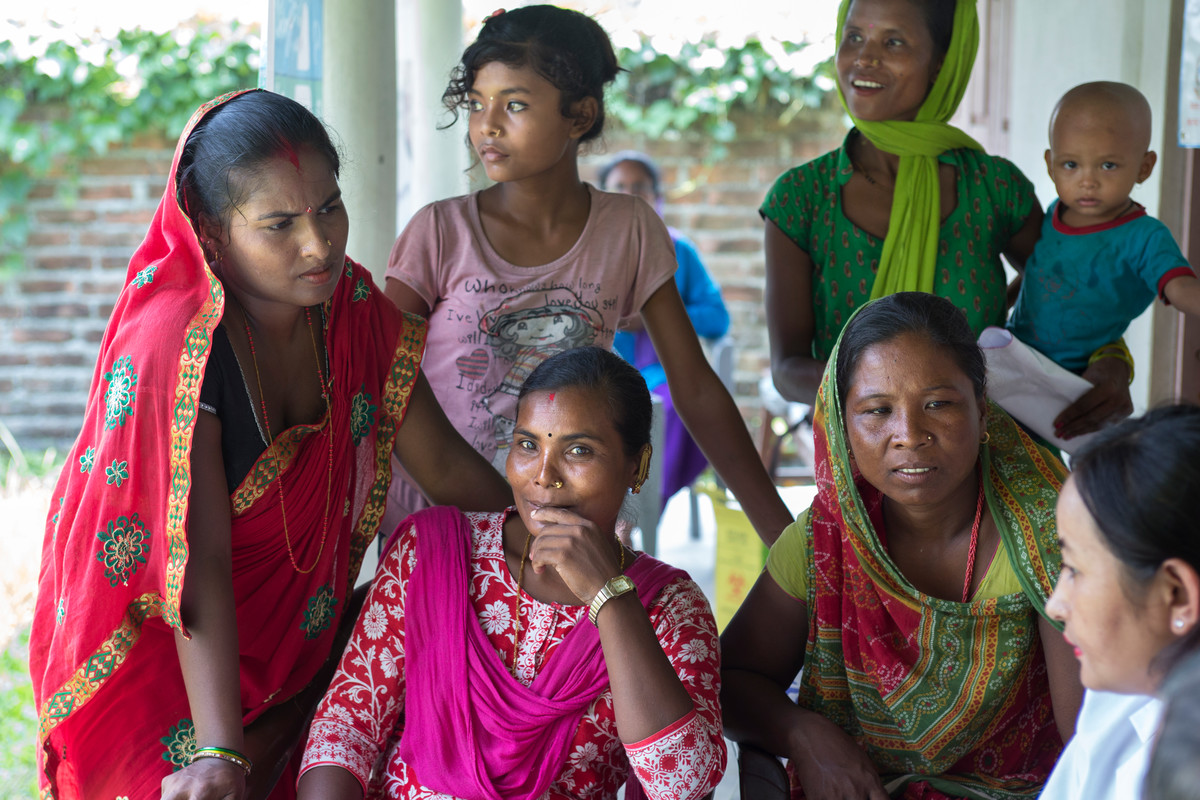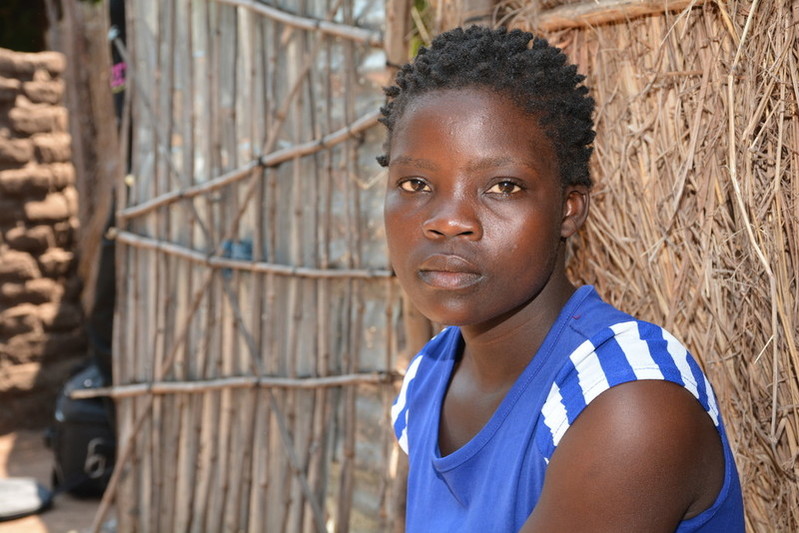Spotlight
A selection of resources from across the Federation

HIV Theory of Change
Our HIV Theory of Change is to clarify the goals and vision of IPPF’s HIV programme and to articulate the different pathways and strategies IPPF uses to contribute towards its HIV goals and vision.
Filter our resources by:

| 09 July 2019
IMAP statement on the ECHO trial
The body of evidence on possible increased risk of HIV acquisition with use of progestogen‑only contraception has remained mixed since 1991, with the greatest concern of an increased risk of HIV acquisition centred on the use of intramuscular depot‑medroxyprogesterone acetate (DMPA‑IM). Data on the risk of HIV acquisition and use of other highly effective contraceptives such as norethisterone enanthate (NET‑EN), hormonal implants, and hormonal and non‑hormonal IUDs are limited.2 And there are no data on subcutaneous DMPA (DMPA‑SC) and HIV risk. In 2016, an updated systematic review of epidemiological evidence on hormonal contraception and HIV acquisition concluded that there was a significant association between the use of DMPA and HIV acquisition and no increased HIV risk with oral contraceptive pills.3 The updated systematic review provided important data regarding DMPA users at high risk of HIV; however, confounding in these observational data could not be excluded. The historically mixed data and the need to control for confounding required further investigation into the association between use of progestogen‑only injectables and increased risk of HIV acquisition, using a more robust research design. This led to the development of the Evidence for Contraceptive Options and HIV Outcomes (ECHO) trial.

| 09 July 2019
IPPF Technical Brief on the ECHO trial
Since the early 1990s, the evidence has been inconclusive as to whether using hormonal contraception increases women’s risk of acquiring HIV, particularly among progestogen-only injectable users. Observational studies indicated that women using progestogen-only injectable contraceptive methods may be at higher risk of acquiring human immunodeficiency virus (HIV). The ECHO trial finds no link between HIV acquisition and the use of DMPA-IM, progestogen implant, and non-hormonal copper IUD.

| 24 May 2019
The Period Quiz
The Period QuizAbout half the world’s population menstruates at some point in their lives, but periods are still a big taboo in many places. What do you really know about the flow? Find out in our quiz...How many periods does the average person have in a lifetime?Only girls and women get periodsAt what point during the menstrual cycle is someone most likely to get pregnant?How much blood does the average person lose during a period?What proportion of girls in Ghana sometimes miss school due to their periods?What is the lifetime cost of a period in the UK?How many menstruators in India use unsafe materials (such as ashes and mud) to manage their periods?Good try! ? If you learned something new today, scroll down to share this with friends.Great work! ? If you learned something new today, scroll down to share this with friends.

| 04 December 2018
Leaving no one behind: Universal health coverage and sexual and reproductive health and rights
Universal health coverage means ensuring every person has access to quality, affordable health services and plays a pivotal role in achieving global development targets. Healthy populations can better contribute socially and economically, while poor health is a major driver of poverty. Universal access to sexual and reproductive health care services is identified in the Sustainable Development Goals as an essential contributor to ensuring healthy lives and promoting well-being for all at all ages. IPPF, together with the London School of Hygiene and Tropical Medicine, undertook a literature review looking at progress to date in and challenges to achieving universal access to sexual and reproductive health and rights. The review, Leaving no one behind, is illustrated with case studies on Afghanistan, Cambodia, Kenya and Sudan. Supported by the Japan Trust Fund.

| 30 November 2018
Quiz: "Can I get HIV from kissing?"
World AIDS Day: “Can I get HIV from kissing?” and other questions answered1 December is World AIDS Day, an opportunity for us all to unite in the fight against HIV, to stand in solidarity with the 36.9 million people living with HIV around the world, and to commemorate those who have died from an AIDS-related illness. Over the past few decades, HIV and AIDS have been discussed a lot, but what do you really know about them? Find out in our quiz >> 1/10. True or false: HIV and AIDS are the same thing2/10. How might HIV be transmitted from one person to another?3/10. If both sexual partners have HIV, then they don’t need to worry about using condoms – true or false?4/10. There are 36.9 million people living with HIV globally. How many of them are not aware of their HIV status?5/10. Can people living with HIV safely have children?6/10. HIV only affects certain groups of people – true or false?7/10. Which of the following is the best way to prevent transmission of HIV and other STIs?8/10. True or false: If you have taken an HIV test already, then you don't need to do it again9/10. How long should you wait before going for an HIV test?10/10. What does being “undetectable” mean?Good try! If you learned something new today, scroll down to share this with friends :point_down:Pretty good! If you learned something new today, scroll down to share this with friends :point_down:Great work! If you learned something new today, scroll down to share this with friends :point_down:

| 28 November 2018
Tackling child marriage in Malawi
Malawi has one of the most comprehensive laws against child marriage in Africa after a new bill was passed in 2017 increasing the legal marital age from 15 to 18-years-old. The Marriage Act of Malawi in 2017 protects any girl under the age of 18 from marriage and holds parents or other family members who marry their children off below the age accountable and liable to prosecution. But even with the law, cases of child marriage are still happening but community Watch Groups have been set up to help. This is the story of one girl helped by her local watch group. Family Planning Association of Malawi (FPAM) with money from the Japan Trust Fund supports the watch group by building the capacity of its members. Five members of the Jalasi Watch Group have been trained about the law, policies around the issue of child marriage and how they align with the by-laws. © Photos: James Ngechu















